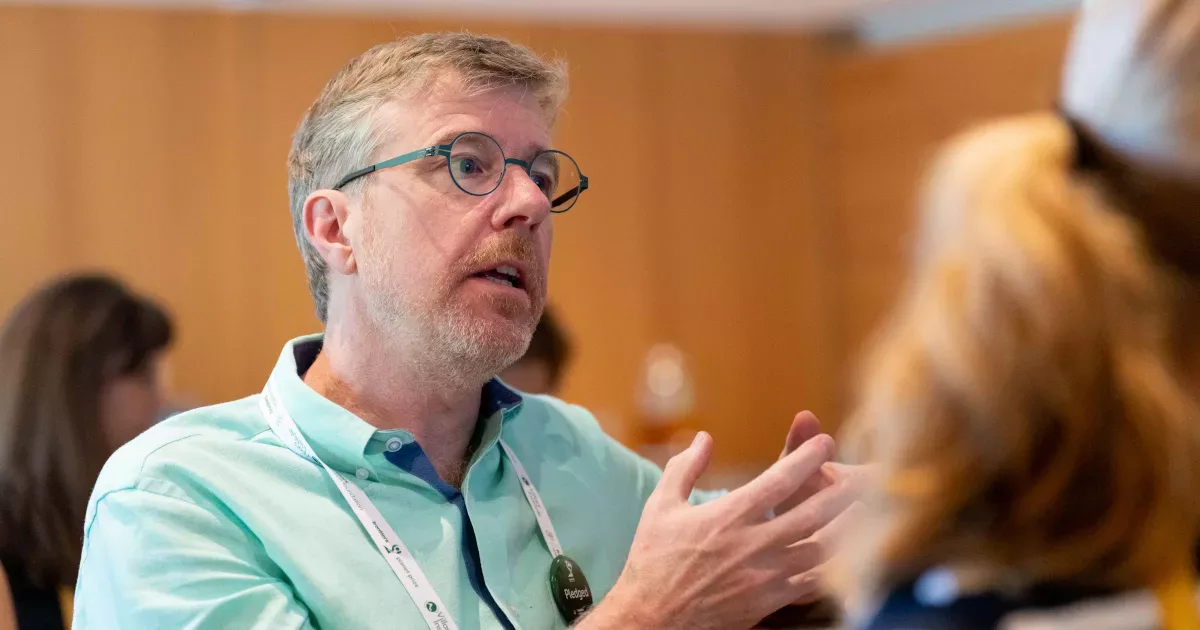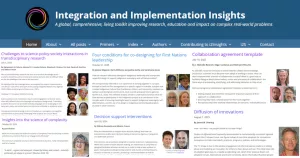Dan Brown: “Sustainability is a problem-oriented field that doesn’t care about disciplinary perspectives”
The president of the newly created National Sustainability Society, in USA, tells why such an organization is necessary today to tackle environmental and human challenges

What is your professional background?
Dan Brown: I have been a professor at the University of Washington for the past eight years. My career spans over 30 years as a land system scientist, focusing on satellite imagery, spatial analysis, and simulation modeling to evaluate human interactions with land systems in various environments, including forests, human settlements, and agriculture. My PhD was in physical geography and landscape ecology, but I soon discovered that to understand what we were seeing, we had to start to think about what people were doing: biophysical gradients and patterns were not enough. My work aims to understand both human well-being and environmental outcomes.
You have recently taken on the role of President of the National Sustainability Society. What is this society about?
D. B.: The National Sustainability Society (NSS) was officially formed in 2025, though discussions began in 2022. We are a nonprofit organization that serves as a hub for sustainability science and scholarship. Our aim is to bring together individuals from various disciplines to focus on sustainability as the primary theme. Our first annual meeting in 2024 attracted about 600 participants, and we are working on growing our membership and activities.
Why not create a subsection within an existing learned society?
D. B.: I have worked extensively in multidisciplinary settings and recognize the value various disciplines bring to the table. But sustainability, in my view, is a problem-oriented field that doesn’t care about disciplinary perspectives. Our goal with the NSS is to create a space for those who find themselves on the periphery of their disciplines but are passionate about sustainability. We aim to include diverse sectors such as engineering, economics, ecology, business, and public health, along with private, nonprofit, and government organizations.
What are the initiatives and plans that NSS is currently pursuing?
D. B.: Beyond having an annual meeting, we are actively discussing the launch of a journal to archive and facilitate dialogue around sustainability scholarship. We are also talking to Juan Camillo Serpa about the SusAN Hub platform, to determine how we could join efforts. Additionally, we are organizing webinars and exploring training opportunities.
Is the NSS solely focused on academia, or does it include members from other sectors?
D. B.: Our membership is transdisciplinary, including academics, business professionals, and NGO members. This diversity is crucial because sustainability challenges require collaboration across sectors. Our goal is to bridge the skills gap in the workforce for sustainability-oriented careers by connecting with practitioners in various fields. We aim to create programs that align with the needs of organizations hiring sustainability-focused graduates, ensuring that our educational programs are relevant and effective. We are also incubating a project that is funded by a private foundation to identify opportunities for accreditation of sustainability programs. That project, led by Krista Hiser, has essentially drawn on scholarship about the learning objectives and the outcomes that should be represented in sustainability programs, based on interviews with people who are hiring, and communicating that back to universities.
Given the global nature of sustainability challenges, does the NSS have international collaborations?
D. B.: Our society is national, focusing on the U.S. To be practical, we wanted to be at a scale where there was at least some degree of common context for the solutions being implemented. Obviously, we recognize the global nature of sustainability issues. We have had initial non-formal conversations with international entities like the Chinese Academy of Sciences and a group in Germany about potential collaborations.
How do you see the NSS evolving in the future, and what role can organizations like EHC play in supporting your mission?
D. B.: We envision NSS as a platform for rich, interdisciplinary dialogue and collaboration. To foster deeper connections, we prioritize in-person meetings : there was no virtual component at our first meeting, and there won’t be any during the next one. We think there is more value in people coming together and developing community, particularly when we are trying to take on really difficult problems that are complex and that require these different perspectives and different people developing closer ties across difference. However, we are open to exploring various forms of collaboration, including potential federations with other national organizations. Sharing information and identifying collaborative opportunities can significantly advance our collective goals in sustainability.
Interview by Luc Allemand
SUBSCRIBE TO OUR NEWSLETTER
To stay up to date with our projects and the development of the EHC
Read more articles

Gian Francesco Giudice: “Ethical responsibility is essential in fundamental research”
From hypothetical black holes to environmental impact studies, CERN navigates risk, transparency, and moral responsibility at the frontiers of human

Dealing with the complexity of society and environment
A global toolkit for tackling complex problems with more than 600 different methods Ever wish you had a free toolkit

The Moon & the Global South: Voices, Risks & Promise
Researchers warn that without inclusive governance, the Moon could become “a new arena for old patterns of exclusion” When rockets

Borko Furht: “AI shouldn’t be given much autonomy without maintaining accountability”
Beyond Superintelligence: The Real Challenges of Keeping Humans ‘In the Loop’ Borko Furht is a professor in the department of